See Our Latest Blogs
Lorem ipsum dolor sit amet, consectetur

Trading Terminologies & Abbreviations with Examples
Let’s learn some important forex trading terminologies and abbreviations. We will always update this page. So you can bookmark it for the next visits.
BOS (Break of structure)
When price breaks a low or high then it is called BOS or break of structure.
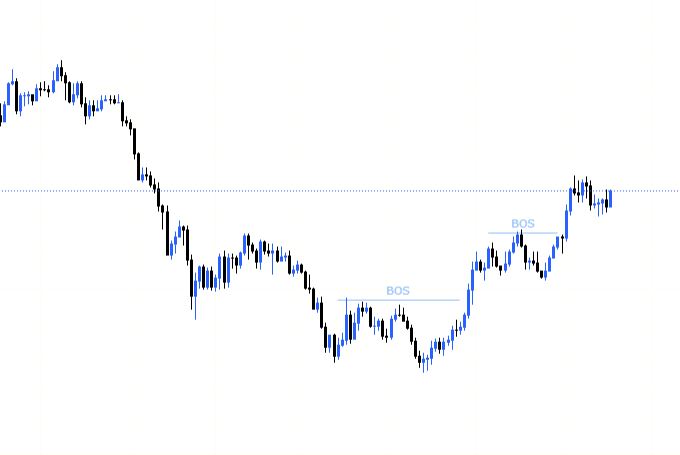
dBOS (Double break of structure)
When price breaks two lows or highs respectively then it is called dBOS or double break of structure.
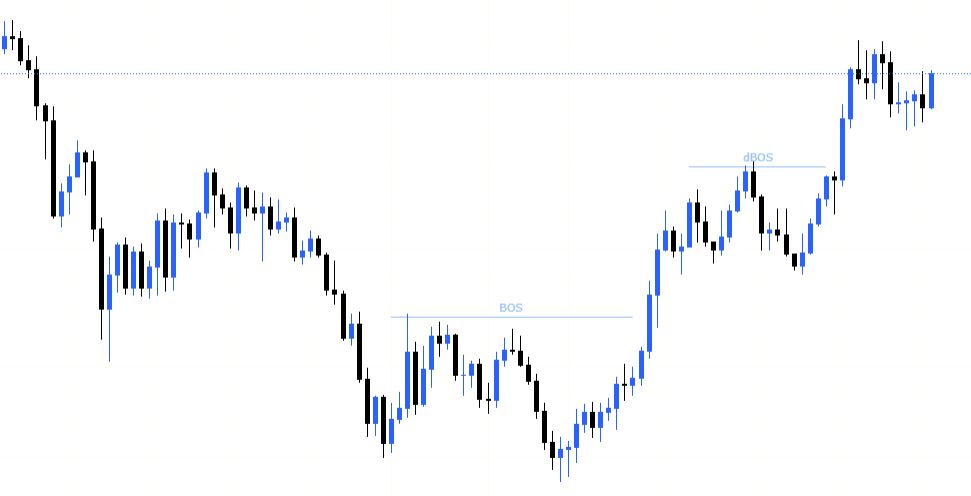
mBOS (Minor break of structure)
When price breaks lows or highs in the lower timeframes then it is called mBOS or minor break of structure.
OB (Order block)
OB or order block is the last opposing one or multiple close candles before a strong directional move. The last sell Candle before the bullish impulse move is called bullish order block and the last buy candle before the bearish impulse move is called bearish order block.
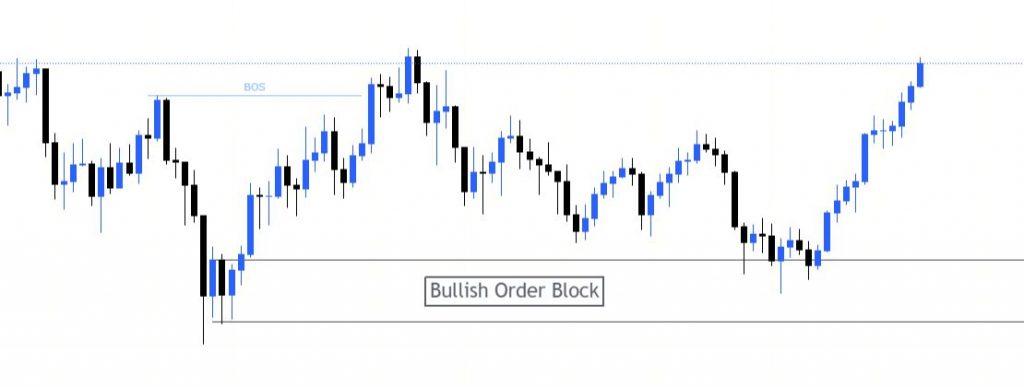
AOI (Area of interest)
These are the areas where we expect the price will react and has the possibility to reverse direction.
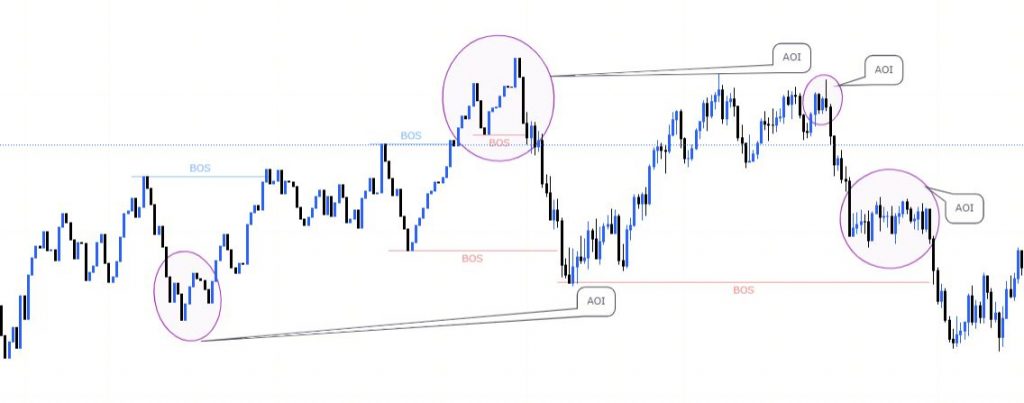
POI (Point of interest)
It is also called DP or decision point.
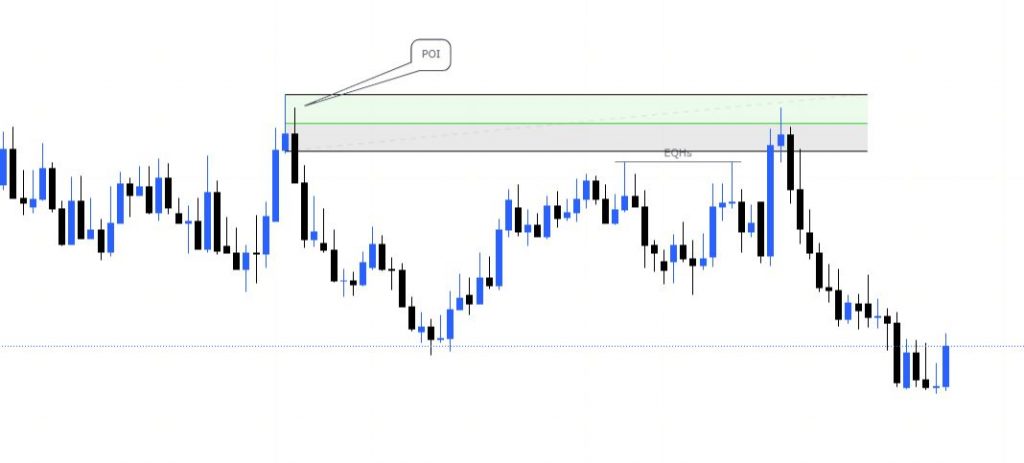
IMB (Imbalance)
Imbalance is an area of unequal market moves where there are only buyers or only sellers exist in the market. It is inefficient or unhealthy price action. It shows disequilibrium between Buyers/Sellers. So an imbalance means unfair price action where the market will almost always come back to fill. Here, the wicks do not fill each other (If they do then it is healthy price action and not an imbalance). It is not mitigation. So, the price doesn’t have to reverse from that point).
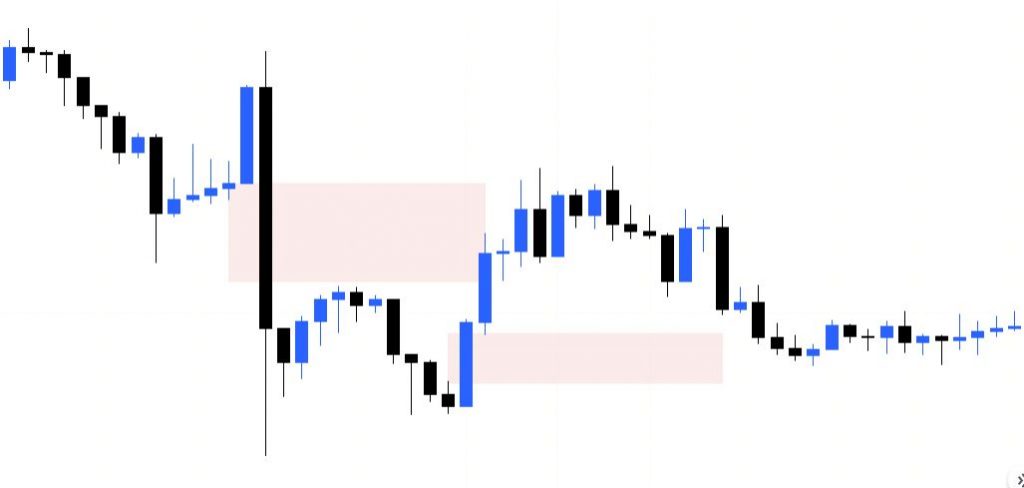
imbalance in forex trading chart
EQ (Equilibrium)
It means fair market value or 50%.
INF (Inefficiency)
It indicates the lack of buyers or sellers in price action, leaving disequilibrium that eventually needs to be filled. If there’s a gap with a large candle that’s the inefficiency of price.
LQ (Liquidity)
Liquidity simply means money or huge opposite orders to be filled to fuel the movement of the market institutions.
IPA (Inefficient price action)
Inefficient price action or imbalance(Lack of Buyers/Sellers in price action, leaving disequilibrium that eventually needs to be filled)
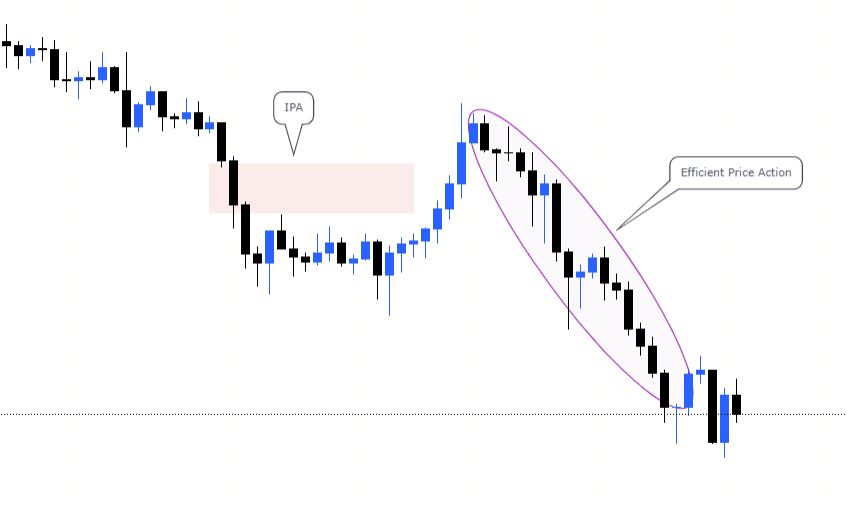
EQL (Equal lows)
It simply means the liquidity below the double bottom (DB).
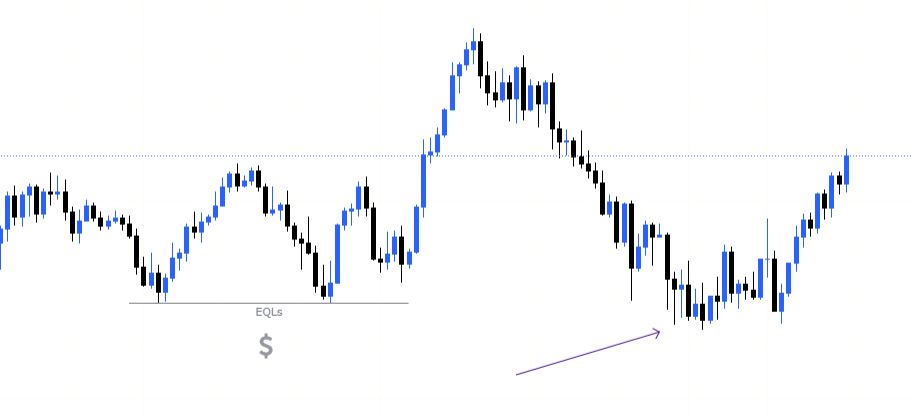
EQH (Equal highs)
It means the liquidity above the double top (DT).
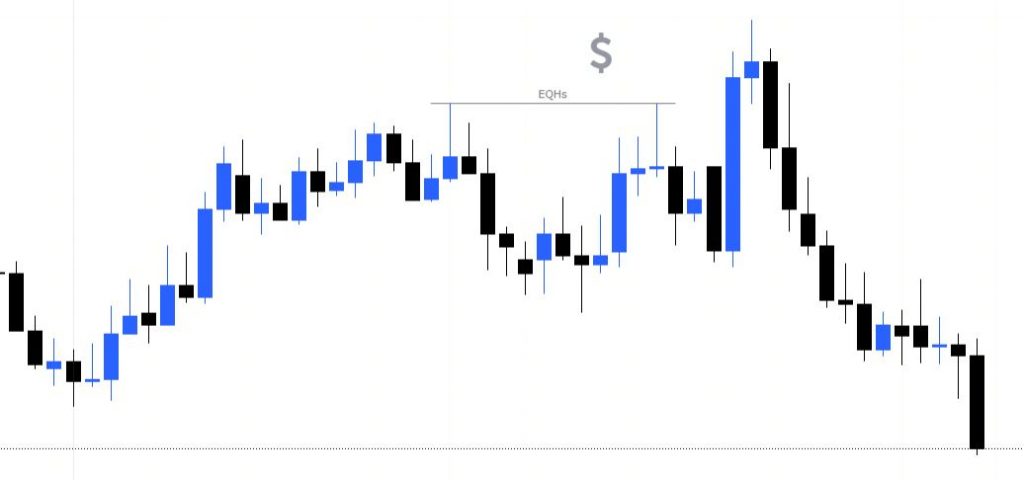
IT (Institutional Trading)
There are several ways to identify institutional trading. These are:
SHC (Stop Hunt Candle)
Fake-out
OB (Order Block)
Large Volume Range
Imbalances (Lack of Buyers/Sellers in price action, leaving disequilibrium that eventually needs to be filled)
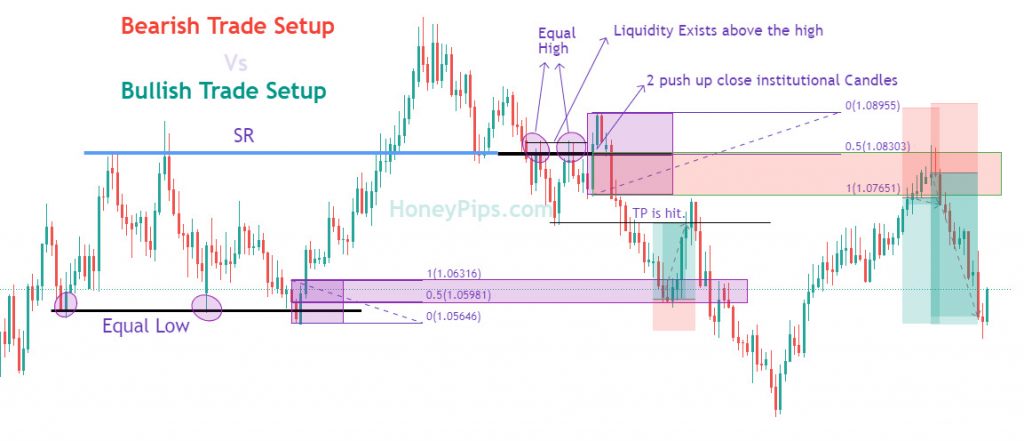
WKF (Wyckoff)
WAS – Wyckoff Accumulation Schematic
WDS – Wyckoff Distribution Schematic
ST – Secondary Test
SOS – Sign of Strength
SOW – Sign of Weakness
LPS – Last Point of Support
LPSY – Last Point of Supply
UT – Upthrust
UTAD – Upthrust After Distribution
SC – Selling Climax
BC – Buying Climax
AR – Automatic Rally Reaction)
TR – Trading Range
PS – Preliminary Support
PSY – Preliminary Supply
Other Abbreviations
BFI – Banks & Financial Institutions
PA – Price action
HH – Higher High
HL – Higher Low
LH – Lower High
LL – Lower Low
Fib – Fibonacci
TF – TF
LTF – Lower time frames
HTF – Higher time frames
MN – Monthly
W – Weekly
D – Daily
H4 – 4 hours
H1 – 1 hour
M15 – 15 minutes
M1 – 1 minute
MS – Market Structure
MOM – Momentum
HTF – Higher Time Frame
LTF – Lower Time Frame
R = Reward/percentage
RSP – Real Structure Point
PRZ – Price Reversal Zone
CPB – Complex Pullback
M – Momentum
RR – Risk: Reward
TGT – Target
SL – Stop Loss
BE – Breakeven
BSL – Buy-side liquidity
SSL – Sell-side liquidity
SC – Sponsored candle
IFC – Institutionally funded candle
EOF – Expectational order flow
Liq – Liquidity
SMC – Smart Money Concepts
SB – Sub break of structure
DD – Drawdown
Be – Bearish
Bu – Bullish
HNS – Head and Shoulders
IT – Institutional Traders
CO – Composite Operators
WHB – Weak Handed Buyers
WHS – Weak Handed Sellers
SHC – Stop Hunt Candle
OBIM – Order Block with Imbalance
OBOB – Lower timeframe Order Block within a higher timeframe Order Block
TR – Trading Range
IT – Institutional Traders
CO – Composite Operators
LP – Liquidity Providers


